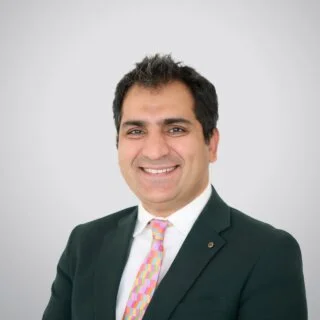Chest pain can appear in various forms, from a sharp stab to a dull ache. It also tends to vary in intensity, duration, location and quality. Chest pain may be an indication of a serious problem as it can involve the heart or lungs. It is important to seek emergency medical help if you are experiencing chest pain.
Causes of Chest Pain
Chest pain has various possible causes, all of which need medical attention. They include:
Heart-related causes
Heart-related causes of chest pain include:
- Angina – chest pain caused by blockages in the blood vessels, which lead to the heart.
- Heart attack – blockage of blood flow to the heart
- Myocarditis – inflammation of the heart muscle
- Cardiomyopathy – disease of the heart muscle
- Pericarditis – inflammation of the sac around the heart
- Aortic dissection – a very rare condition that involves a tear of the aorta
Lung-related causes
Lung-related causes of chest pain include:
- Viral bronchitis
- Pneumonia
- Pneumothorax
- Pulmonary embolus or blood clot
- Bronchospasm
Gastrointestinal causes
Gastrointestinal causes of chest pain include:
- Heartburn or acid reflux
- Swallowing problems
- Gallstones
- Inflammation of the pancreas or gallbladder
Muscle or bone related causes
Muscle or bone related causes of chest pain include:
- Sore muscles from exertion or chronic pain syndrome
- Broken or bruised ribs
- Compression fractures that cause pressure on a nerve
Other causes of chest pain include shingles and panic attacks.
Symptoms of chest pain
Chest pain may be accompanied by other symptoms and identifying them may help your doctor with the diagnosis.
Heart-related symptoms
The most common symptom of a heart problem is pain, although some individuals usually experience other symptoms with or without the chest pain. Chest discomfort is generally associated with a heart attack, angina or other heart problems. The symptoms include:
- Fullness, pressure, tightness or burning in your chest
- Searing or crushing pain that radiates to the neck, back, jaw, shoulders and one or both arms
- Pain lasting more than a few minutes and usually gets worse with activities
- Cold sweats
- Shortness of breath
- Weakness or dizziness
- Nausea or vomiting
Other symptoms
There are other symptoms that may indicate that your chest pain is not a heart-related issue and they include:
- Acidic or sour taste in the mouth
- Pain that occurs when you eat or swallow
- Difficulty swallowing
- Pain that gets better or worsens when you change your body position
- Pain that intensifies with coughing or breathing deeply
- Tenderness when you push on your chest
- Persistent pain
Diagnosis of Chest Pain
Seek immediate emergency medical attention if you suspect that you are having a heart attack or if the chest pain is new, lasts more than a few minutes or is unexplained. At the Emergency Department, the physician will ask you some questions that will help in diagnosing the cause of your chest pain.
He/she may order tests that will help to eliminate or diagnose heart-related conditions as a cause of your chest pain. These tests include:
- Electrocardiogram to record your heart’s electrical activity
- Chest x-ray to examine the heart, blood vessels and lungs
- Echocardiogram to record moving images of the heart
- MRI to look for damage to the aorta or heart
- Blood tests to measure the enzyme levels
- Stress tests to measure the function of the heart after exertion
- Angiogram to look for blockages in specific arteries
Treatment of Chest Pain
Treatment for chest pain largely depends on the cause.
Medications that are used to treat some of the most common causes of chest pain include:
- Aspirin if the chest pain is related to your heart
- Artery relaxers to help the blood flow more easily through the narrowed spaces
- Blood thinners if you have a clot in an artery feeding your lungs or heart
- Thrombolytic drugs if you are having a heart attack
- Acid suppressing medications if the chest pain is caused by stomach acid
- Antidepressants if you are having panic attacks
Other treatments include:
- Cardiac catheterization which may involve using stents or balloons to open up blocked arteries
- Surgical repair of the arteries which is also called bypass surgery or coronary artery bypass grafting.
Next Step
At King’s College Hospital Dubai, we focus on offering an exemplary service from initial consultation through to the final diagnosis and treatment and beyond. Our team of expert doctors and nurses are here to offer tailored management and treatment of your condition, and to answer any questions that you might have throughout your time with us. Whatever you need us for, we’re only a phone-call away.
If you’d like to book an appointment, simply fill in the appointment form below.
Faqs
الأسئلة الأكثر شيوعا
Dr. Mehmood (Consultant Interventional Cardiologist), Dr. Omar Hallak (Consultant Interventional Cardiologist), Dr. Jose Carlos Moreno Samos (Consultant Interventional Cardiologist), Dr. Layla Al Marzooqi (Specialist Cardiologist & Aeromedical Examiner) and Dr. Ali K Moussavi (Specialist Cardiologist) are considered the best Cardiologists in Dubai.
BOOK AN APPOINTMENT





